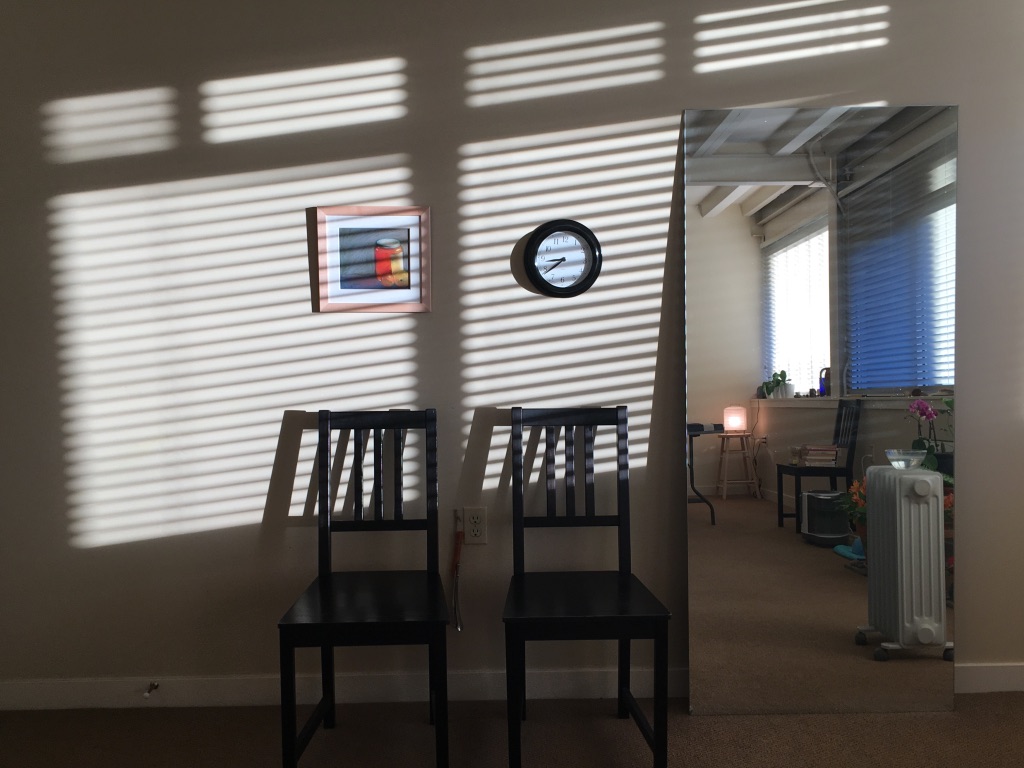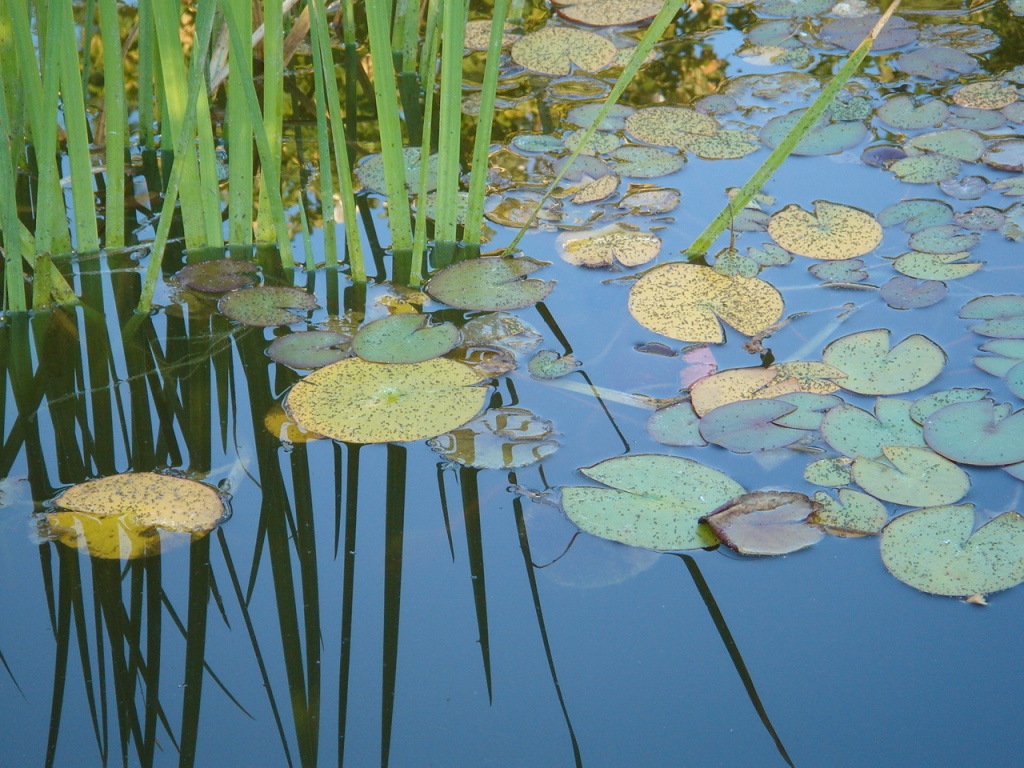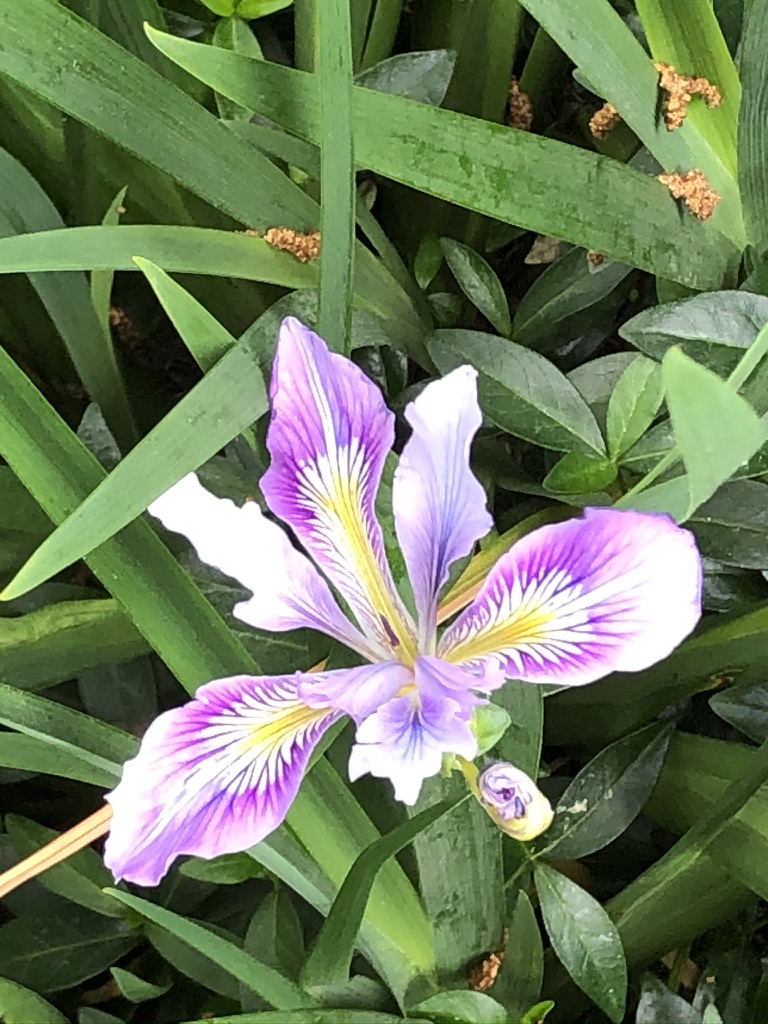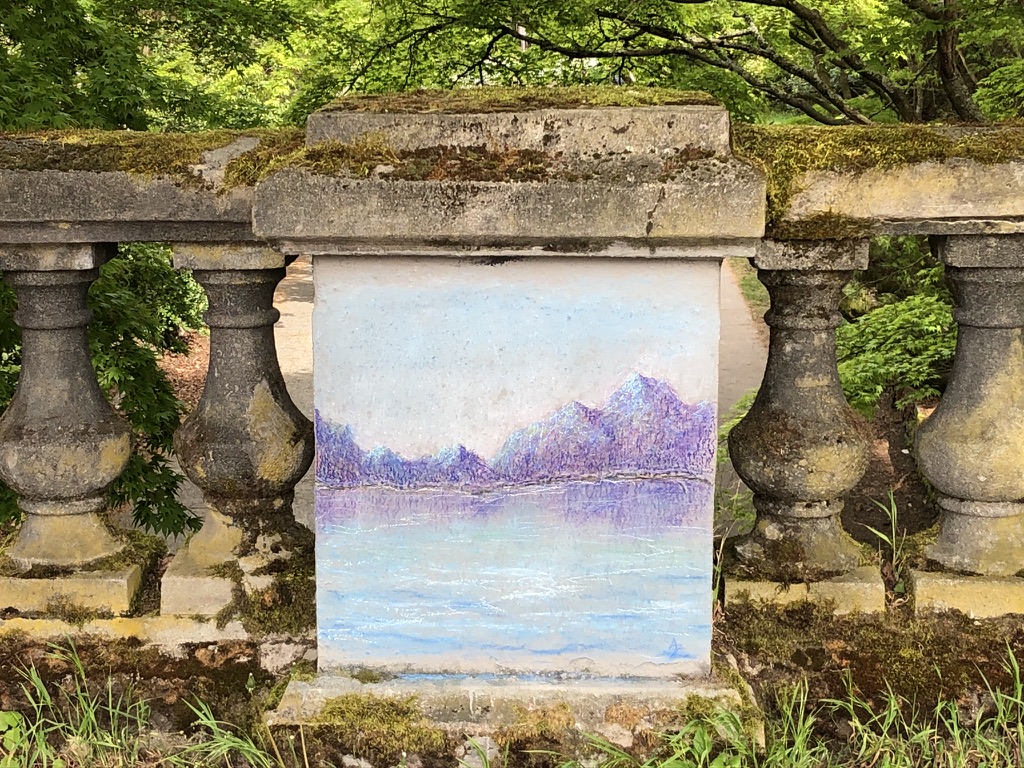Life happens, curiosity continues
Ongoing refinement of the instrument of self does not require conditions that we might consider “ideal”. The quiet oasis of an Alexander studio provides an environment in which to build skills in dynamic non-interference, spatial thinking, and prioritizing means over achieving ends. Life outside the studio brings challenges and demands: injuries, losses, anxieties, neighborly noise and pandemics, for instance. We have nearly endless opportunities for application of our Alexander skills in life. In the studio, we learn to rise from a chair with a balance of tone. In life, we can rise to demands with a unified response. So much more than postural support and increased respiratory freedom is potentially enhanced by bringing our Alexander skills to the activities of life. We learn how to learn in lessons, and then to broaden our attention in life.
In these surreal times, demands have risen considerably. The oasis of an Alexander studio has shifted to the often overstimulating screen. The teacher can only direct via words and visual demonstration. The responsibilities on student and teacher shift and increase. Both learn to constructively engage whole self thinking, without the amplified field of attention that the skilled hands of an Alexander teacher provides.
We can complain about the difficulties, or we can rise to the demands. We can relinquish “getting it right” and give up replicating a hands on lesson. We can unfix and undo for a new experience. We can bring the quieting spaciousness of lessons to the noise of life.
It’s a tall order, but by increments we learn, adapt, remain curious and rise with ease from the chair.

Worry Mode and Constructive Choice
How do I know I am worried? There’s the mental chatter, of course, and forehead tension, limited respiratory support, narrowed visual reception and a general sense of withdrawal from the world. I am spinning a narrative (so many potential threads these days), reacting to said narrative threads, and narrowing and shortening myself in the resulting spin. Where is my choice in response when so much is worrisome?
A good beginning is choosing levels of stimuli (news/information). Knowing enough news/information to remain effective but not so much as to paralyze response is an ongoing balance of choice. It may be a daily, hourly decision to know what level of news/information input allows conditions for your best response. You can refuse news and information with ease. Making that decision provides a sense of your own constructive choice. Knowing what is too much information for best elastic response is key to making best decisions, thinking with your entire self, and prioritizing the unified field of self over gaining any end. You gather data from your own experience, make choices, proceed and gather more information. Helplessness recedes once you are your own research system. You are no longer at the mercy of media.
The above assumes the essential and complex step of choice in response, which requires noticing the many cues (sensation, emotion, thought, muscle) in the first place. We know we are experiencing an emotion due to physical signals which we define mentally and interpret from belief, prior experience and societal framework. There is no point controlling the emotion we identify, as that is already flooding our entire system of self. But, we do have a choice in response to emotional experience.
- I notice mental chatter that draws me inward. I can decide to quiet chatter and attend to the world outside myself. I can ask for wide, soft eyes, wide receptive ears, connection to the ground. I can ask for quiet in my entirety.
- I have narrowed and shortened into a “startle pattern”: arms and legs pulled inward, jaw tensed, breath restricted. I take a moment to request all four limbs to undo (not relax or deaden, undo) out of my entire lively back, and for best possible elastic throughout myself.
Is any of this perfect or have perfect results? Of course not! We learn by experience, in increments, by loops of sensations, thought and emotions. We can’t control the loops, but we can choose our response to the loops, and thus remain effective in these weird pandemic times

The window of impossibility, with curiosity as means
Dynamic non-interference is a key skill for Alexander teachers and students. Over time, and with guidance, we learn to more accurately notice unnecessary efforts, and to cheerfully request a new response. We ask how much less we can do, fix, or be right as we consider activities, whether those activities be primarily mental, physical or emotional in emphasis. We bring our entire thinking, emoting, moving, sensing instrument to everything we do. The more we request a unified field of self, the more solutions arrive. The less we hold the instrument into a fixed or “right” mode, the more new experience we can allow, the more quietly surprising solutions we can welcome.
Of course, it’s hard work to allow activities to do themselves. We have to actively, skillfully get out of the way. Often, it seems impossible to rise on the toes, teach an online lesson, engage in political discussion or speak through a cloth mask without the tensions associated with those activities. The link between an associated set of muscular/mental/emotional tensions and achieving the activity indicates that the activity is impossible without those tensions. We believe a certain amount of doing is necessary.
And thus, the “window of impossibility” beckons. We have an opportunity to cheerfully refuse (no finger shaking here, this is exploration, not a test) what seems necessary, so that a new solution can arise to our big planetarium brains. The stimulus is to do something. But perhaps I prefer to undo, to allow time (even a micro-second) for a more unified self, and to receive the world outside myself. Being right stiffens the neck. Fixing myself just fragments me into parts and pieces, and rushing to do something deepens the doing/fixing battle and provides no new data. I can go quickly without hurrying and go slowly without freezing if I allow that dynamic interior permission of time. Welcoming curiosity, allowing gravity and the tidal movement of breath as connection to the world shifts brain state, improves postural support and broadens sensory perception.
Happy curiosity becomes a means, and the window of impossibility holds interest and mystery rather than defeat and frustration. We learn by undoing to proceed elastically to doing, without doing too much.

Allowing new response
Public health and epidemiology experts have recommended wearing cloth masks in public settings in order to significantly reduce transmission of SARS-CoV-2. A mask doesn’t just decrease infection potential for the wearer. A mask reduces the transmission by asymptomatic people to others. If we all wear masks when out and about, we care for each other, our communities, and thus ourselves.
Many pedestrians (runners and walkers) share the streets and sidewalks during my daily walking miles. Most wear masks and attend to physical distancing. Others, not so much. I can’t do anything about the non-mask wearing, too close to me walkers and runners, but I can undo my habitual response.
I spoiled a portion of an otherwise lovely walk with a lovely friend furrowing my brow, tightening my neck and accelerating all the signals of frustration and anger while we encountered the unmasked and un-distanced. Surely other choices were available.
Maybe, given the Alexander skills that can apply to all life’s activities, I can even be angry without all the non-productive associative habitual reactions, like brow, neck and respiratory narrowing. Maybe I don’t have to disconnect from the ground. Maybe I can even be effective once I notice anger, instead of trapped in my tightening response, accelerating heedlessly.
Dynamic non-interference and indirect means may provide guidance and possibility. Suppressing anger or pretending I am not angry gets me nowhere. Why pretend I am not having an experience? Yelling at the unmasked is tempting but likely increases tensions. What I can do is choose what not to do.
I don’t want a furrowed brow, a tight jaw and neck, or restricted interior volume. I want my whole elastic self. I want to see the world, enjoy the season of birds and blooms, remain effective, learn in the challenge, bring increments of reason to bear on my manner of response

.